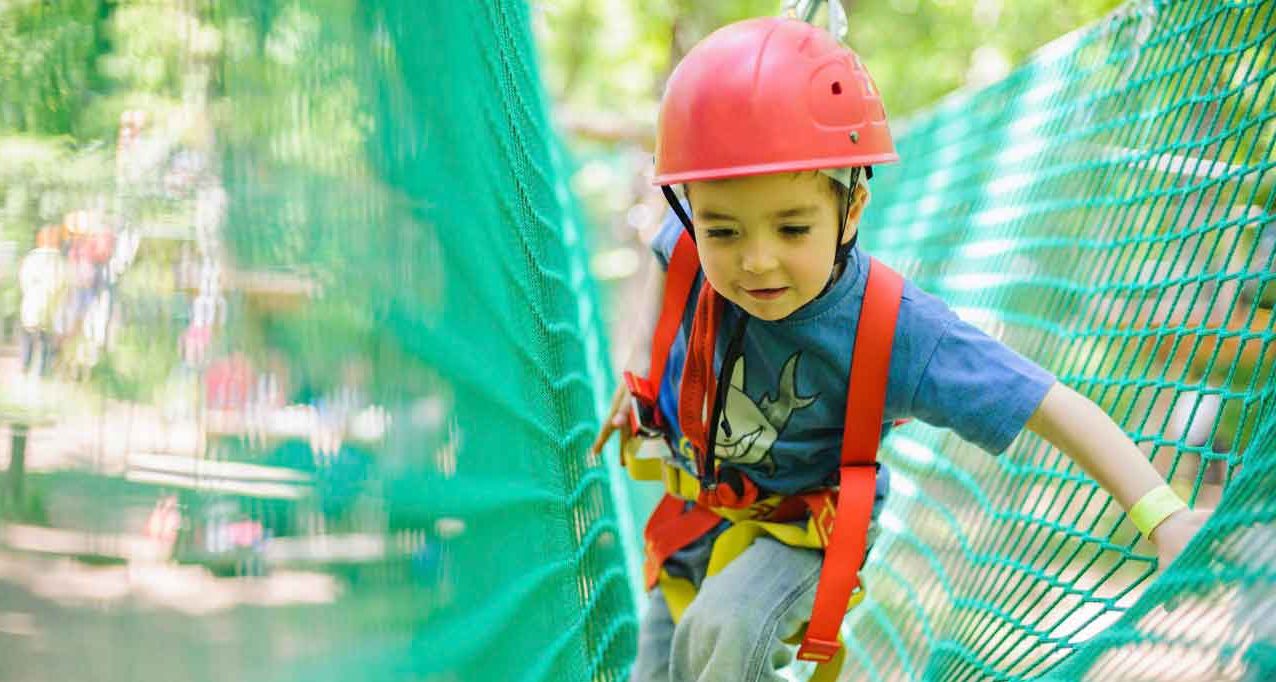Smart Risk Taking Is Good for Kids

Good judgment and the ability to take chances are just two advantages of smart risk taking in kids.
It may seem counterintuitive to you, but kids who take risks are healthier emotionally and more ready for what lies ahead in adulthood.
YOU MIGHT ALSO LIKE: 3 Ways to Promote Creativity Through Art-Based Play
Risky outdoor play is not only good for your child’s health but also encourages “creativity, social skills, and resilience,” according to research from the University of British Columbia. The study found that children who participated in physical activity — such as climbing and jumping, rough and tumble play, and exploring alone — displayed greater physical and social health.
“We found that play environments where children could take risks promoted increased play time, social interactions, creativity and resilience,” said Mariana Brussoni, lead author of the study. “These positive results reflect the importance of supporting children’s risky outdoor play opportunities as a means of promoting children’s health and active lifestyles.”
In contrast, parents can sabotage their children's potential success with "overindulgent negligence," or overprotection and a sense of entitlement — behaviors that convey a message of doubt and can deplete the self-confidence that will stimulate healthy risk, according to Edie Raether, a Charlotte, N.C.-based parenting coach.
In her presentations, Raether uses famous entrepreneur and serial risk taker Richard Branson as an example of someone who was encouraged to take risks as a child, with his parents' support, and became confident enough early on to start businesses as a teen — and watch them fail.
Today, his Virgin Group has hundreds of businesses in at least 10 distinct business sectors, according to Virgin.com.
But long before he became a billionaire, Branson writes in his book "Losing My Virginity: How I Survived, Had Fun, and Made a Fortune Doing Business My Way," he failed as a kid at growing Christmas trees for a profit (rabbits ate all the seedlings) and breeding and selling budgies, a popular bird in Britain.
There are four components of parenting smart risk taking, write Susan David and Nancy Eppler-Wolf, authors of “Raising Children Who Soar: A Guide to Healthy Risk Taking.”
They believe those components are understanding the development of smart risk taking, developing a practice of self-reflection, developing a practice of listening, and understanding how the child-parent connection impacts risk taking.
“When children learn how to take good, thoughtful risks, they also learn how to think independently, with the confidence to examine all sorts of intellectual, social and cultural messages that don’t make sense,” they write.
“Old and prejudiced notions about the inequality of men and women, and racial, sexual and cultural intolerance are issues that each of our children will struggle with during development.”
When you think of risk-taking the other way around, from the standpoint of how it can teach your kids to think through issues of safety and danger, it not counterintuitive at all. In fact, it makes perfect sense. When you keep your kids from trying new things, from taking a chance, you hinder their judgment, the authors say.
“Risk is inevitable, and without learning the skills of good risk-taking, our children will be more apt to take impulsive and poor risks. Through the development of thoughtful risk-taking, children will be better equipped to leap at life’s opportunities, and to rebound from life’s disappointments,” David and Eppler-Wolff believe.
Updated:
February 27, 2020
Reviewed By:
Janet O’Dell, RN